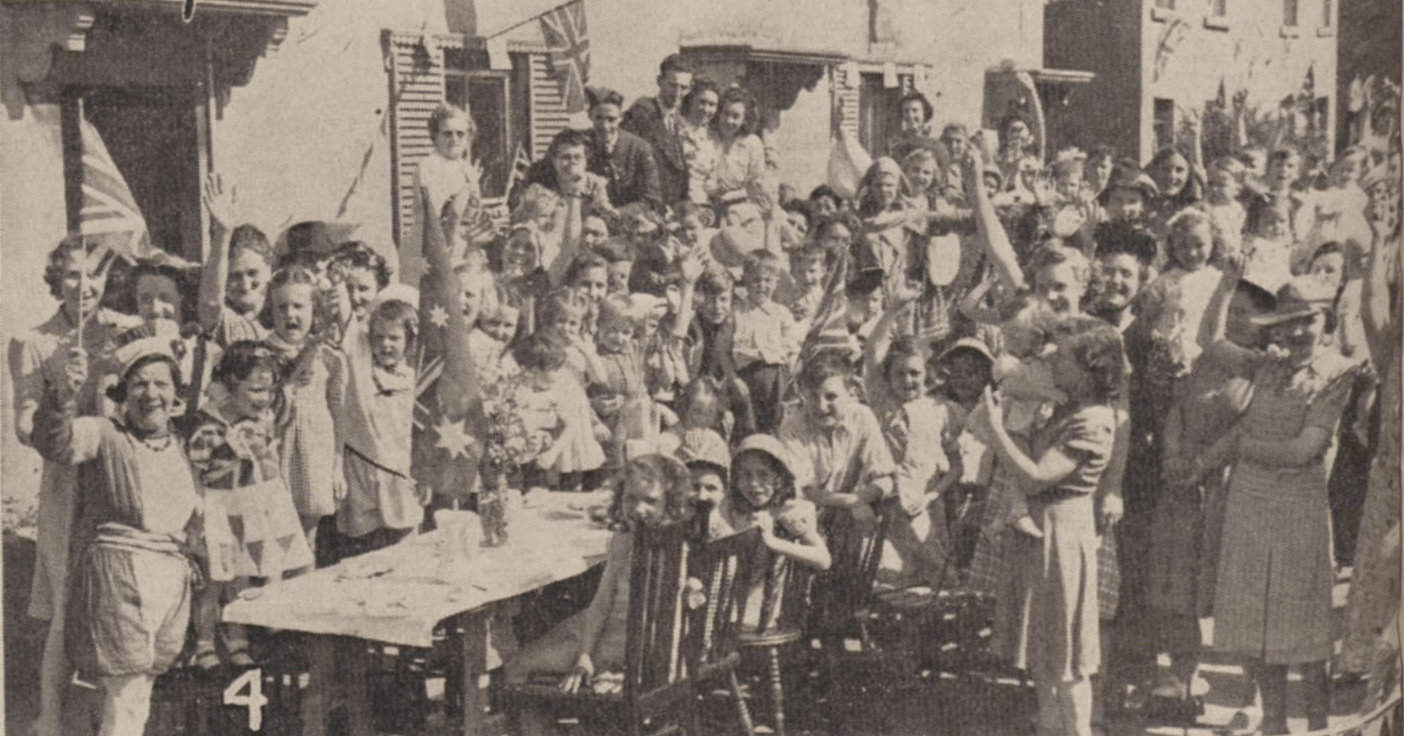│By Megan Bowler, Gale Ambassador at the University of Liverpool│
With Remembrance Day events looking a little different in the UK this year, you may recall that we also celebrated the 75th anniversary of VE Day under lockdown. Due to coronavirus restrictions, many of the big celebrations that were planned were postponed. While we wait for large public gatherings and events to become possible once more, I took the opportunity to use archival sources to look back to the first VE Day celebrations, and, using recent news stories from Gale OneFile: News, compare the events of 2020 with those of 1945. Providing access to articles written up to the present day from over 2,300 major world newspapers, Gale OneFile: News will be extremely useful for a study of this kind, whilst Gale Primary Sources offers perspectives from both national and regional newspaper archives.
VE Day
Victory in Europe Day commemorates the allied powers’ defeat of Nazi Germany. May 8, 1945 marked the end of the Second World War in Europe and Hitler’s Third Reich. A collective sigh of relief and wave of celebration broke out across the continent as crowds gathered to rejoice; the war that had claimed the lives of millions of loved ones was finally over. The British media played a significant role in transmitting this news across the world. Within hours of Churchill’s public broadcast, newspapers ran headlines and journalists joined the crowds to report upon the celebrations that would be so fondly remembered for days, months, and years to come. Thus, the many British newspaper archives, available to many institutions via the Gale Primary Sources platform, are invaluable to this study.
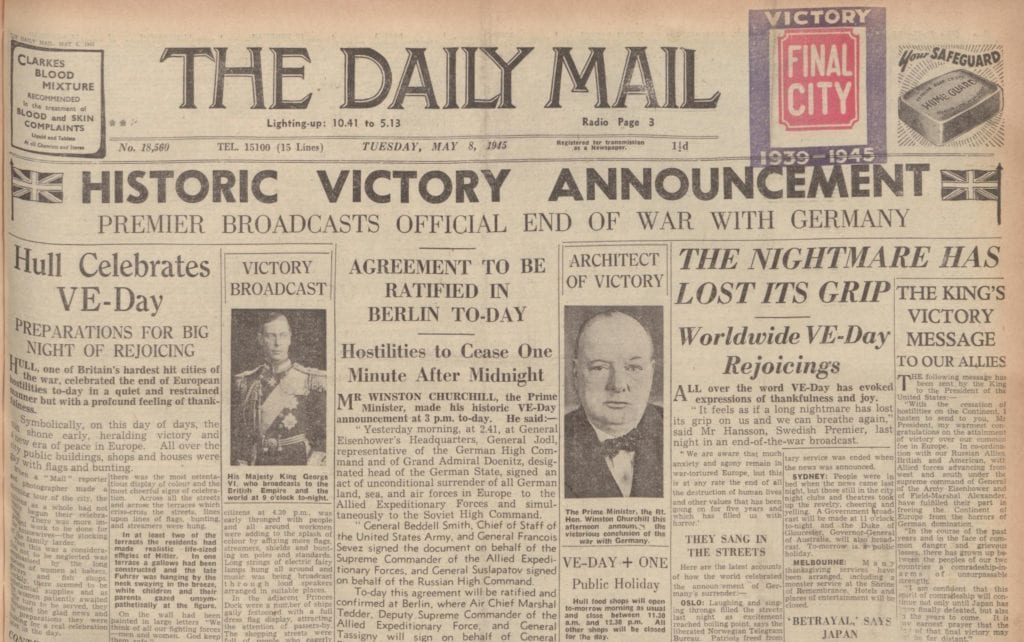
1945
While national newspaper archives provide historians with a wealth of valuable information about the day’s most significant celebrations, regional newspaper archives allow unique insight to the day’s most intimate gatherings. These articles describe scenes of celebratory bonfires, dances, and tea parties in villages decorated in streams of red, white, and blue. According to the Dundee Courier,
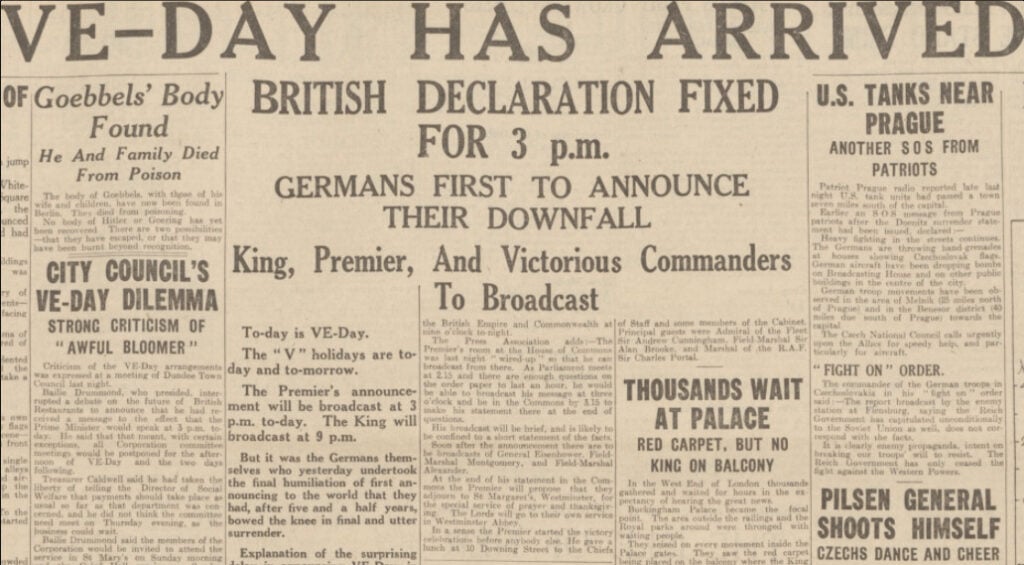
In 1942, the city of Bath fell victim to the German Baedeker Raids. Unlike attacks on London, Coventry, or Liverpool, the Bath Blitz was intended to destroy historical and cultural centres, rather than strategic military hubs. Articles and images published in the Bath Chronicle and Weekly Gazette highlight the resilience of the people of Somerset during this time of hardship.
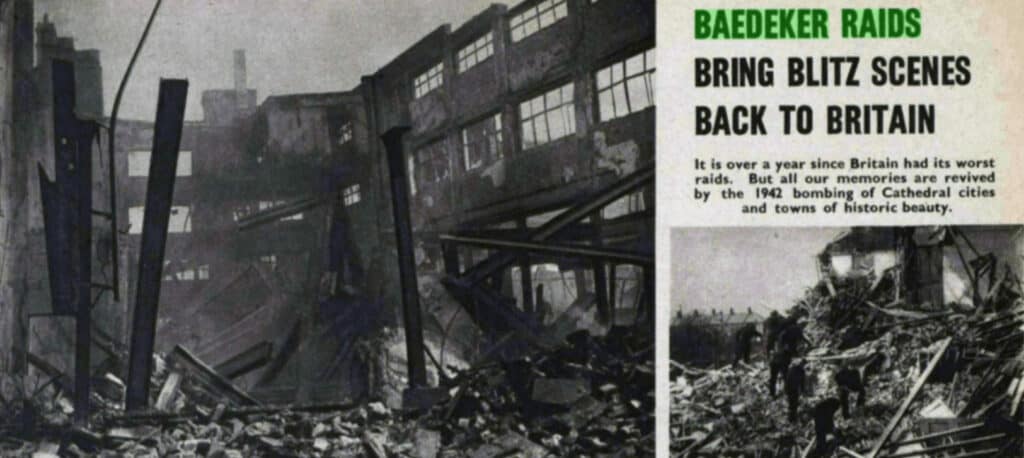
Monkton Combe, Bath, was once described as “England’s luckiest Village,” as on VE Day its 74 serving men and women were all believed to be safe! Although affected by the Baedeker Raids, the village “had cause to celebrate VE Day with fervent gratitude.” According to the Bath Chronicle and Weekly Gazette, the “night was filled with music” and the village school playground “became a ballroom […] with the spirit of a carnival.”
2020
Unfortunately, due to circumstances we have been become all too familiar with, many of this year’s national VE Day celebrations were postponed. Although there were to be no celebratory parades, concerts, or mass gatherings, the Government acknowledged that there were “still plenty of ways to celebrate and mark the anniversary whilst staying safe at home”. So, in the truly British fashion of “Keep Calm and Carry On,” many Brits did exactly that!
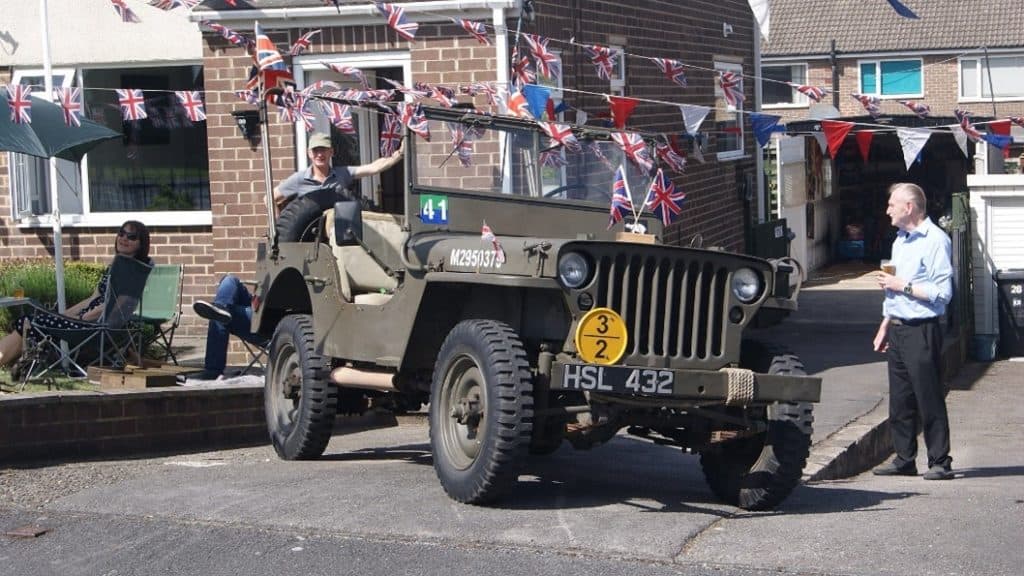
At 3pm, a national “Toast to the Heroes of WWII” took place for people across the country to raise a glass “to those who gave so much.” In Kirklees, residents of the borough were encouraged to host doorstop tea parties and “create their own flags to wave and to join in with the national toast to those who served in the war.” Similarly, the Telegraph Online reported that one town in Harrogate delivered “sandwiches and scones to elderly residents,” while Scouts in Gloucestershire suggested families decorate their gardens in a VE Day theme for all to see.
However you celebrated, I’m sure you’ll agree that this year’s VE Day is one we will never forget.
Want to read more about remembrance and the commemoration of World Wars, using primary sources? Check out:
- When the Past Comes A-knocking – Why We Shouldn’t Forget About the Wars
- Between the Acts: Remembering War during the Interwar Period
- Sir Bertram Ramsey – Britain’s Unsung War Hero.
Blog post cover image citation: “Tea in the Street: VE Days They’ll Remember.” Bath Chronicle and Weekly Gazette, 19 May 1945, p. 2. British Library Newspapers, https://link.gale.com/apps/doc/ID3236096703/GDCS?u=livuni&sid=GDCS&xid=cead8fda

